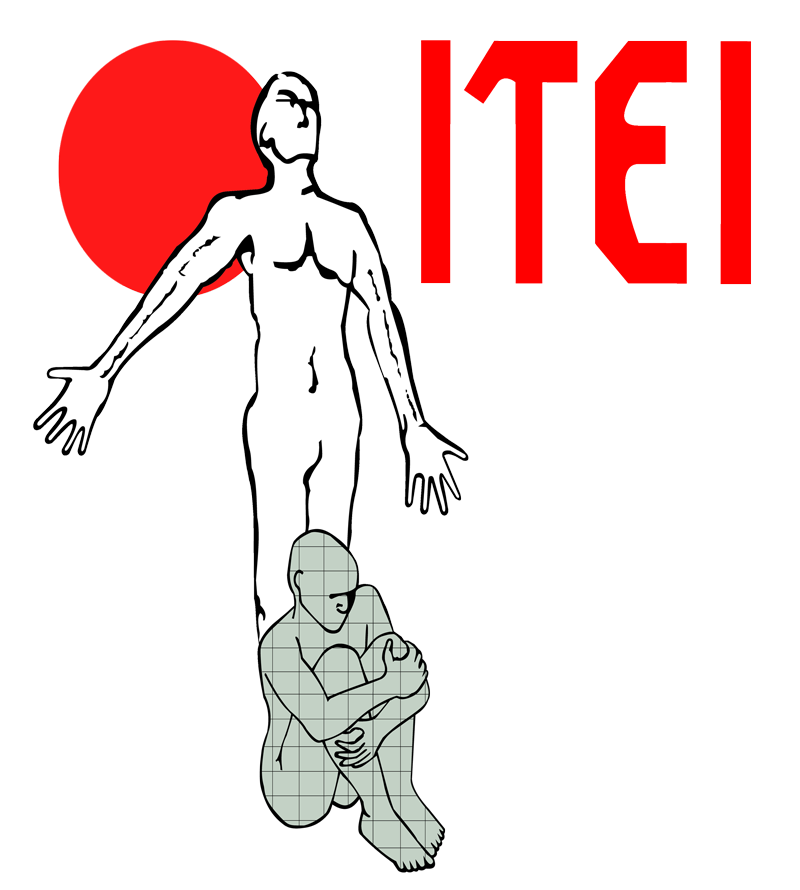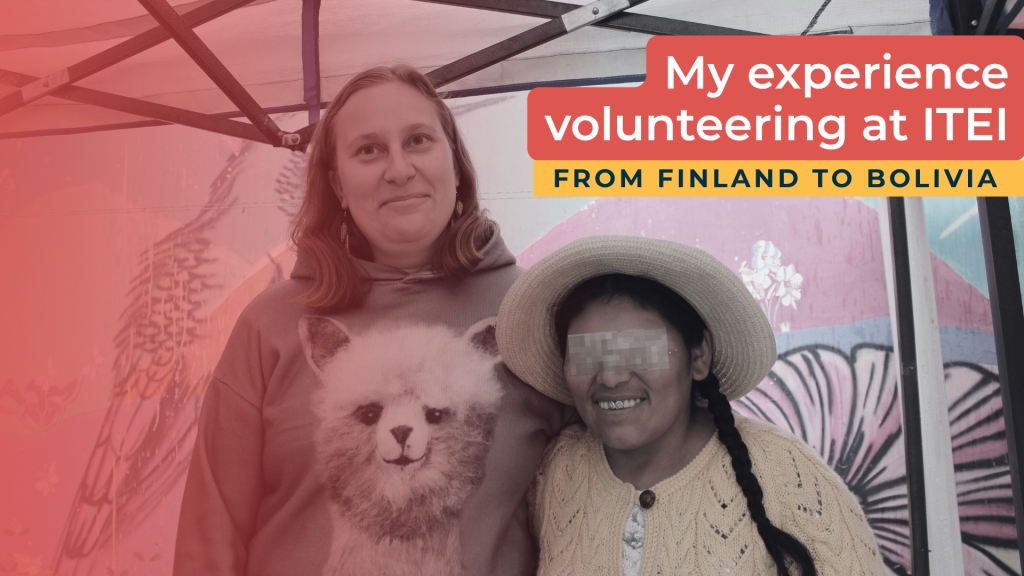Anna-Maija Kanerva (32) is a volunteer from Kangasala, Finland, who—after earning a master’s degree in Cultural Heritage and motivated by a desire to broaden her knowledge of languages and foreign cultures—was accepted into the International Cultural Youth Exchange (ICYE) volunteer program. In September 2024, she traveled to Bolivia to apply her expertise to the work of the Instituto de Terapia e Investigación sobre las Secuelas de la Tortura y la Violencia de Estado (ITEI; Institute for Therapy and Research on the Aftermath of Torture and State Violence) in La Paz.
We invite you to read the interview we conducted with Anna-Maija:
Could you describe the process of choosing your volunteer mission in Bolivia? What information ultimately influenced your decision to contribute to our organization and our country?
AM: When I graduated from university in Finland in 2021, it was very clear to me that I wanted to do some kind of cultural exchange abroad. Unfortunately, during the last years of my studies it was very difficult to arrange an exchange because of COVID, so I had to look for another option once the situation calmed down. While searching, I remembered ICYE, an organization that offers volunteering programs abroad for young adults, and I decided to apply.
The most important reasons for me when choosing a country for my volunteer year were the possibility to improve my Spanish and to work with human rights. At first, I considered countries like Peru or Argentina, since they are very well-known and popular in Finland, whereas I knew very little about Bolivia. However, a couple of former volunteers in the organization recommended Bolivia to me, because there are more projects related to human rights that are especially suitable for volunteers who have already completed university studies. After reading more about Bolivia—its cultural and linguistic diversity and its varied natural landscapes—I decided to choose this country for my volunteer placement.
How would you describe ITEI’s mission and activities to an audience unfamiliar with its work?
AM: Whenever someone asks me what ITEI is and what it works on, I explain that it is a human rights organization that helps people who have suffered violence and abuse by the State in Bolivia. ITEI assists in various ways, offering, for example: psychological support, legal assistance, and also medical attention when needed. Moreover, the ITEI team enters prisons to help people deprived of liberty: they organize workshops on different topics and conduct studies on prison conditions to share this information with society and other human rights organizations, thereby promoting changes in laws.
Can you share some experiences with ITEI that you consider most relevant to your life?
AM: I am very happy for the opportunity to work both in the office and in the workshops that ITEI organizes in prisons. My most impactful experience has been the workshops inside penitentiary centers, where I’ve been able to support.
I had never visited a prison, not even in Finland, so I had no idea what to expect. My image of prisons came mainly from television series, with inmates dressed in orange behind gray walls, although I knew that was not the whole truth. In reality, daily life in prison seemed like an ordinary routine, with shifts to wash clothes, cook, and occasional workshops or courses. Inside those walls, the day-to-day is always the same.
I have also heard how many police officers mistreat people deprived of liberty, even using violence. Yet what really struck me was the warmth with which the people deprived of liberty always welcomed me, even inviting me to join their dance classes that my colleague, Soraya Gautier Guillet, was teaching them.

Do you see any important similarities or differences regarding the protection of human rights (especially on the issues ITEI works on) between your country and Bolivia?
AM: I can identify some significant similarities and differences between Finland and Bolivia regarding human rights protection. One notable difference is that in Finland, state institutions tend to be stable and reliable, and there is a fairly strong institutional culture of respect for human rights, so cases of torture or violence by authorities are uncommon; when they do occur, they are investigated and always appear in the media. Moreover, Finland is known as one of the countries with the lowest levels of corruption in the world, which also contributes to greater trust in institutions. In contrast, in Bolivia I have noticed that many people do not trust the justice system or the authorities, and that institutional violence—such as abuses committed by the police or within prisons—is more frequent and often goes unpunished.
Another difference is that in Finland there is a broader network of public services to support victims of violence—such as free psychological care, legal protection, or shelters—whereas in Bolivia these responses often come from civil society organizations like ITEI.
However, I also see certain similarities. In both countries there are groups that are especially vulnerable whose rights are not always guaranteed, such as migrants or ethnic minorities. Even in Finland, work remains to ensure equality for everyone.
As you near the end of this volunteer year, what are the main lessons, challenges, hopes, and/or questions that will accompany you from now on?
AM: I have learned so much about Bolivian society and the parallel realities people live in these times of crisis. In particular, I have learned a great deal about the life and daily routines of people deprived of liberty, and about those small moments that bring them joy. I have also greatly improved my Spanish during this time.
When I return to Finland, I carry with me a completely new understanding of different ways of life and the struggles in a country in the midst of a crisis—realities that are not so visible, or do not even exist, in my own country and cannot be fully understood just by reading books.
I hope in the future to be able to work in some way with human rights in a multilingual and multicultural environment, and I believe this volunteering experience has given me a completely new perspective on how to see the world. Bolivia has also become a very dear country to me, and I hope to return in the future.

This experience has changed me a lot and has made me see things I didn’t understand before. I am very grateful for the opportunity and eager to continue learning and helping in the future.
Anna-Maija Kanerva
Finnish ICYE Volunteer for ITEIJune, 2025

